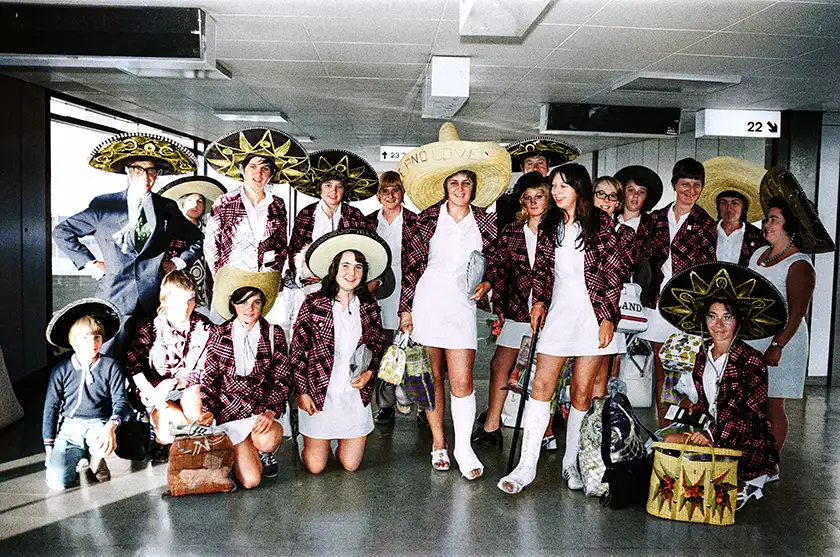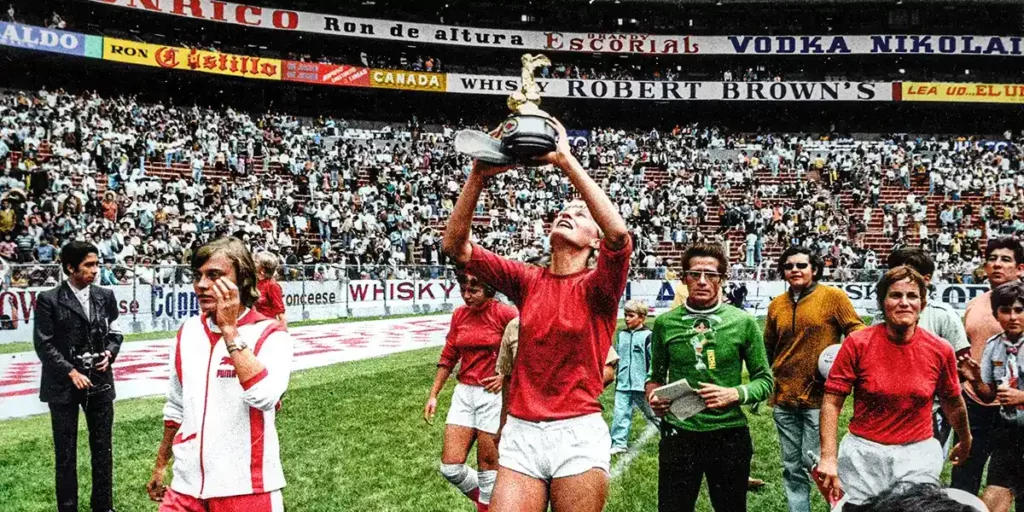James Erskine and Rachel Ramsay’s film Copa 71 is a transportative journey into the unbelievable forgotten 1971 Women’s World Cup.
Directors: James Erskine & Rachel Ramsay
Genre: Sport, Documentary
Run Time: 90′
US Release: June 21, 2024
UK Release: TBA
Where to watch: in theaters & VOD
Pelé, Bobby Charlton, Franz Beckenbauer are worldwide icons to any football or sports fan worth their salt. Footballing legends that transcend the sport, becoming heroes to their respective nations. Men who helped build football into the biggest sport in the world and importantly, in the context of Copa 71, stars of the 1970 FIFA World Cup.
What Copa 71, and its directors Rachel Ramsay and James Erskine, question is why the above male footballers are household names while Elena Schiavo, Carol Wilson, Susanne Augustesen etc. – standouts from the 1971 Women’s World Cup – barely have Wikipedia entries.
On the surface, the 1971 Women’s World Cup – note it’s not called the 1971 FIFA World Cup, due to FIFA not recognising it – was a major success. It sold out stadiums in Mexico City and Guadalajara, including the final, which filled a 110,000 seater stadium. Fans were enthralled by the action on the pitch and by the personalities off it. Even England, who only scored one goal and finished bottom of their group, were treated like royalty. They were invited to dinners, they opened businesses, and they were generally looked after just as the men would have been a year earlier. For just over two weeks at the finish of Summer 1971, these footballers were momentarily famous, respected and hopeful.
That is the story of COPA 71, a pie in the sky dream for women footballers of the time – come true. The film uncovers a remarkable true story, forgotten in the public consciousness and to the most die hard of die hard football fans. First and foremost, a supremely popular, successful women’s football tournament uncovered from obscurity would be a fascinating story and documentary, but that is only the start.

With interviews from key players at the tournament, and constant twists in the narrative – such as the referee rigging the semi-final, disallowing a clear Italy goal, allowing hosts Mexico to reach the final, and the Mexican team going on strike just before the tournament final – Copa 71 is a purely entertaining sports documentary.
However, it’s the contextual information we know as viewers on the future of women’s football and the information we find out about the sports past that make Copa 71 a, at times, heartbreaking viewing experience. The knowledge that it was a whole 20 years after this that women got their own official FIFA World Cup and then very slowly became the fastest growing sport in the world, recontextualizes the whole film. To imbue the film with a severe sense of mourning of what could have been, the film could play with this slightly more, leaning in into the overwhelmingly unjust way women have been treated in the footballing community, rather than aiming for an overall positive tone.
In saying that, while the film is not a complete downer – it certainly ends on a positive note – it doesn’t skirt around the difficulties the women’s game has had since the early 20th century. It touches on Western, supposedly forward thinking countries banning women’s football in recent history, and pointing out how the tournament organisers forced women to wear “hot pants” during their games. There is a grounded realism to the film that, while being celebratory of the event actually happening, recognizes this was a money making ploy put on to capitalise off the success of the Men’s 1970 FIFA World Cup.
However, Ramsay and Erskine do mostly focus on the moment, and the moment is spectacular. The archive footage is astounding and transportative. Apart from a few games that weren’t filmed, the viewer can enjoy lush and well preserved footage of high quality football. The filmmakers choice not to get too bogged down in the sexism and misogyny that held back women’s football and sport for so long is commendable.
A focus on the athletic, serious and ambitious women is ultimately the right choice. By interviewing several players from the teams at COPA 71, you get the sense that these women weren’t there for a nice exhibition event – this was the pinnacle of their career. The best of their sport facing off against each other. That is more than enough for an inspiring documentary.
Copa 71 is a vital documentary for sport fans and for the sports unconverted. While it could potentially choose a different, darker tone, it thrives when highlighting the women involved in this unbelievable story. Their careers didn’t take off because they simply weren’t allowed to play football, post this World Cup. Let’s hope that Copa 71 can undo societal wrongs, make these women trailblazers and get the fastest growing sport to grow even faster.
Copa 71 was released in US theaters and digital platforms on June 21, 2024.

